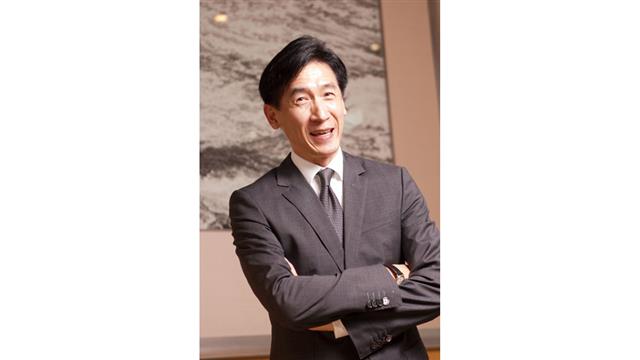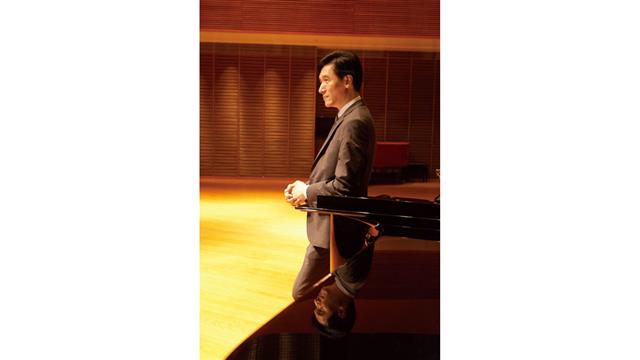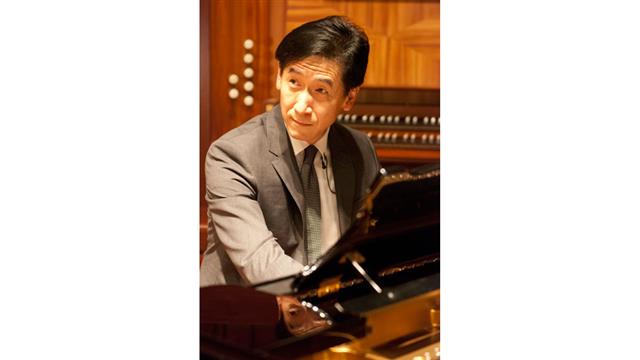Why did you agree to take up the post of Head of Chung Chi College?
I don't see much difference between being the head and a teacher at the College. The unwavering mission of education is to nurture the personal growth of students, in particular their inner qualities. I'm only fulfilling the duty in another capacity which, I believe, will enable me to better work with my colleagues to facilitate students' growth, through interacting more deeply with them in college life.
How do you interpret the spirit of Chung Chi based on your decades-long acquaintance with the College?
It's very paradoxical. Chung Chi values its humanitarian legacy and strives to establish and nurture the value of each and every student. Yet over emphasis on the value of individuals will breed self-conceit, which we abhor. On the other hand, we uphold the Christian ethos on which the College was founded, which views oneself as a humble servant to serve but not to be served. So while seeking one's self-value, one has to think low as a small individual in the vast universe in the eyes of the Creator, and has to reflect on how to develop our strengths with the right force and focus.
Being one of the three founding Colleges of CUHK and having a history of more than half a century, what will Chung Chi strive to uphold?
General education and the tradition of liberal arts which we have taken pride in. But they are extremely difficult to defend. As times and circumstances change, and the composition of the community differs, the unquestionable core values are facing big challenges.
What does it want to establish?
I always say that there's nothing new in the mission of education, which is the personal growth of students through developing their inner qualities. If that is true, what we want to uphold and establish will be the same things. We need to revitalize our general education and the tradition of liberal arts in the modern times. It does not come easy and requires deep thinking, which is a luxury given the hectic lifestyle we are having now. I'm experimenting ways to create new platforms to stimulate reflection. I have built my blog to discuss life issues with College members. This morning I just shared my view on what's happening in Central now. I also launched a lunchtime music appreciation session every Monday, encouraging people to set aside 30 minutes from their routine, slow down, clear their minds, ponder for a while before taking on the road again.
What does it want to break away from?
To ‘break' away from something is a difficult decision. It takes tremendous courage to trim something down which has all along existed. Time has its designated cycle and is limited. To expand business endlessly is impossible. We need to set priorities, and stop doing the less important in order to ease up space for the more important. This could be disturbing, painful and frustrating, but it's necessary.
Aren't artists poor administrators? How come you have taken up quite a number of chief administrative posts?
Style and uniqueness are indispensable calibre for an artist. Similarly, the charisma of an administrator may come from an uncompromising management style and individuality in thinking. So artists could have an edge as administrators. On the other hand, artists are good at improvisation and weak in organization. Fortunately I'm a composer whose job is to organize sounds meticulously in a systematic manner to form meaningful imageries. My strength in this area may prove relevant in management.
What impact has music made on your life?
Studying music enhanced my self-discovery. I came to understand more about myself and my relationships with people and things around me. And most important of all, I've learnt to listen and be patient. Music is an art of communication which employs a very refine and sublime language. How can I play music if I don't listen to others? How can I communicate with the audience if I do not consider what they would love to hear through their ears? Listening implies waiting patiently. When I write music, I need to stop from time to time, to ponder on the next move at points of uncertainty and indecision, I need to stop and wait. It could be two hours, two days, two weeks …. Who knows. But when the time comes, I will know the best continuation of what has been going on.
As a composer, do you think it's difficult to find a musical soul mate?
Definitely! In the world of music, it's so difficult to find somebody who can read your mind and share your thoughts. You will be the luckiest person on earth if you could find one. It's so rare and hence so valuable. Writing music always drags me into a lonely, desolate, helpless and unsympathized situation. I'm so familiar with it that I even indulge in it. But there have been some unexpected moments when I could feel somebody around who might have understood and echoed to what I was doing. Such ecstasy is unbeatable!
Who are the composers that touch you most?
I love music of the Classical and Baroque periods in particular. I love the precision in organization, the attention to detail, the sincerity, the seriousness in attitude and the abundance in content. The more you listen to them, the richer the meaning you can derive. It gives you a brand new experience with every listening. Some musical works are glamourous and elaborate in style, ear-pleasing and exciting, but with nothing worth exploring under the flamboyant outlook. I have full respect for music of those periods and I aspire to be like the composers back then. How I hope I could be a faithful servant and a prolific composer of church music like Bach. Starting some 30 years ago, I have been writing music for my church on a weekly basis. I take this as training for both my life and my skills.
Under the context of globalization, will Chinese music become uniformed too?
Geographical difference and cultural tradition will lead to a certain degree of uniformity in musical styles. However, dialectal diversity in China has enriched the possibilities of music. Dialect is the most familiar communication tool one can employ, and the experience in dialectal expression will naturally translate into the creation of music. As a result, on the course of development, music in different areas of China share something common in within the larger framework of the Chinese culture, and at the same time maintain diversity to a very large extent, enjoying more flexibility and varieties than that in other cultures within the context of globalization.
Do you still write music amid your busy schedule?
Of course I do. Losing the value of my meaningful existence is what I fear most. I will never allow it to happen. To keep myself active, I have accepted several commissioned jobs and the submission deadlines are drawing near. I also need to complete a CD recording by next year. There are many roles one can take in life. I'm wearing more than 30 hats at the same time. Besides fulfilling the duties of a composer and College Head, I also need to be a loving father, husband, and pet owner, etc. To maintain a balance in the roles I assume and do my best in the respective capacities is my biggest challenge in life.




